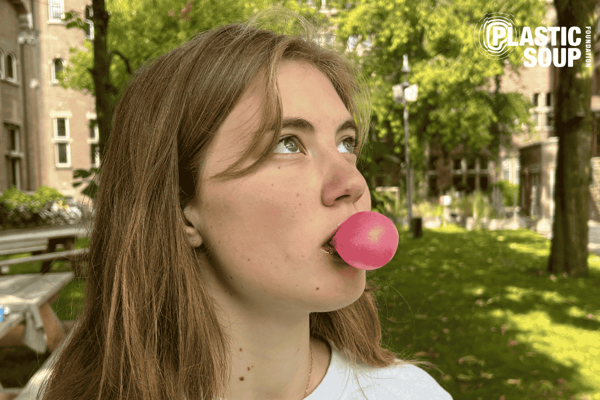Why the UK must ban plastic waste exports – and why Plastic Soup Foundation supports this
By Environmental Investigation Agency (EIA UK) and 53 co-signatories, with the support of Plastic Soup Foundation
A step in the right direction, but is it enough?
This autumn, the British government is preparing a consultation on its plans for a circular economy. We welcome the fact that the government is taking plastic pollution seriously, as shown by the new Circular Economy Taskforce and the UK’s commitment to the Global Plastics Treaty. The public is deeply concerned about plastic waste, and the focus on reducing plastic use is an important step.
But something crucial is missing: a complete ban on the export of British plastic waste. Without this ban, the UK will continue to maintain a harmful and unethical trade – and undermine its own progress.
The problem: British plastic waste export is a backdoor
The United Kingdom produces enormous amounts of plastic waste – much more than it can process itself. Instead of addressing this problem, a large part is exported, often to countries that are unable to manage it properly. The Netherlands also plays a key role here: our country is one of the largest importers of British plastic waste, but then re-exports part of it to other countries, often with less strict environmental regulations.
This practice has serious consequences:
It fuels waste crime and environmental damage in receiving countries, where plastic pollution destroys ecosystems and threatens human health.
It undermines national efforts to reduce plastic consumption and waste, both in the UK and in the Netherlands.
It poses legal liability risks, as the ongoing export contradicts the UK’s international obligations.
Earlier promises to stop this trade have not been kept. Meanwhile, other countries are taking drastic measures: the EU has effectively banned the export of plastic waste to most countries, and major receiving countries such as Thailand, Indonesia and Malaysia have themselves introduced import bans or strict restrictions.
The Netherlands as a transit hub for British plastic waste
The Netherlands is not only an important destination for British plastic waste but also serves as a transit hub. Some of the plastic that the UK sends to the Netherlands is not processed here, but transported onwards to countries with less strict environmental regulations. This makes the Netherlands jointly responsible for the environmental damage and waste crime that occur elsewhere.
A British export ban would not only force the UK but also the Netherlands to manage its own waste streams better and invest in real, sustainable solutions.
New evidence, same urgency
Since EIA first brought these concerns to the attention of British ministers, the evidence has only become stronger:
British plastic waste exports are at their highest levels since China’s National Sword policy; delays and weak measures are pushing more and more waste across borders.
Waste crime and fraud remain a major problem in receiving countries, with devastating consequences for the environment and public health.
Support for a ban is growing, partly due to the findings of the Runnymede research on climate change and racism.
However, current proposals, such as Extended Producer Responsibility (EPR), risk making the situation worse. If EPR payments only focus on recycling costs and local authorities start competing on price, even more plastic waste will be exported – instead of less.
The solution: a complete ban and investment in local processing
The UK must take responsibility for its own plastic waste. That means:
A phased ban on plastic waste exports to both OECD and non-OECD countries.
Sufficient funding for local authorities to process waste responsibly.
Prioritising reduction and reuse, rather than incineration and export.
The UK cannot claim to be a leader in the circular economy while simply shifting its waste problem to other countries. A complete ban is not only ethical, but also necessary to meet international obligations and protect global ecosystems.
Why Plastic Soup Foundation supports this
Plastic Soup Foundation (PSF) has been fighting plastic pollution and the unjust trade in plastic waste for years. PSF sees that the export of plastic waste to countries with less strict environmental regulations leads to severe pollution, health problems and injustice.
Precisely because the Netherlands is an important link in this chain, PSF supports a British export ban. This would encourage not only the British but also the Dutch government to:
Put an end to the invisible plastic flow that pollutes our planet and communities.
Develop truly circular solutions, such as reducing plastic use and improving recycling at home.
Promote international cooperation, so that all countries take responsibility for their own waste.
PSF believes that a ban on plastic waste export is a crucial step towards a fair and sustainable future – for the UK, the Netherlands and the rest of the world.
Call to action
We call on the British government to include a complete ban on plastic waste export in the upcoming consultation. Half measures are no longer enough. The UK must set the right example for the world, not export its waste.
.png?version=18376)






